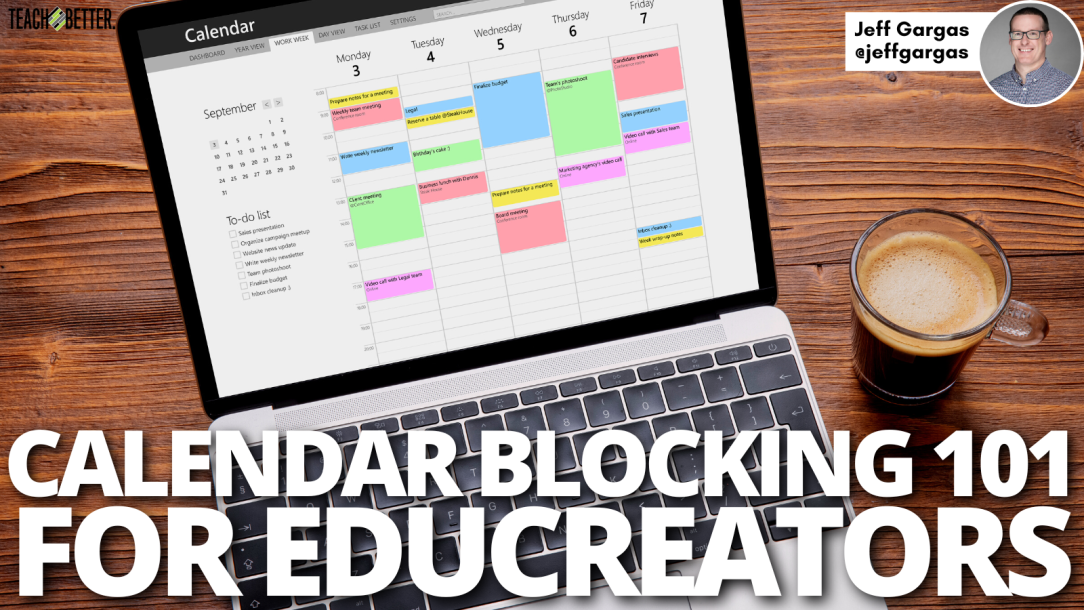There is no doubt that many of us are feeling tired, exhausted, disheartened, and burnt out. Those feelings are real, yet, how do we break through and move forward. Listen in to find the answer and encouragement for breaking through the burn out cycle and finding that passion again for what we do. MORE EPISODES
Calendar Blocking 101 for EDUcreators
TL;DR: Calendar blocking is a time management technique used by successful EDUcreators to increase productivity and manage their demanding schedules effectively. It involves allocating specific time blocks in your calendar for different tasks or responsibilities, reducing distractions, and improving focus. Prioritize your tasks, create a daily to-do list, and practice task batching to group similar tasks together. Experiment with day … Read More
5 Tips for Being More Productive
TL;DR: People want to be more productive but have limited time. Being organized can help reduce mental stress. 5 ways to stay organized and productive are: create a list, put things away immediately, don’t avoid quick tasks, establish routines, and take notes. Implementing these tips can increase productivity and create more free time. Today I’m going to be more productive. … Read More
Challenging the Status Quo: Featuring Dave Schmittou
In this week’s Aspire to lead episode, Dave Schmittou discusses ways to confront your own thinking and how to challenge the status quo. But the aim of our conversation is not to provide a step-by-step, one size fits all solution. Instead, the goal is to create a spark that inspires you to engage in difficult conversations. In this episode, we … Read More
5 Strategies to Improve Your Time Management
TL;DR: Managing time effectively and maximizing every minute is essential for personal and professional success. Prioritize tasks with the Eisenhower Matrix to help you assess urgency with importance. Embrace the Pomodoro Technique by working for 25 minutes + 5-minute break intervals. Use the time-blocking technique to schedule specific blocks of time for different types of tasks. Eliminate distractions. Track your … Read More






